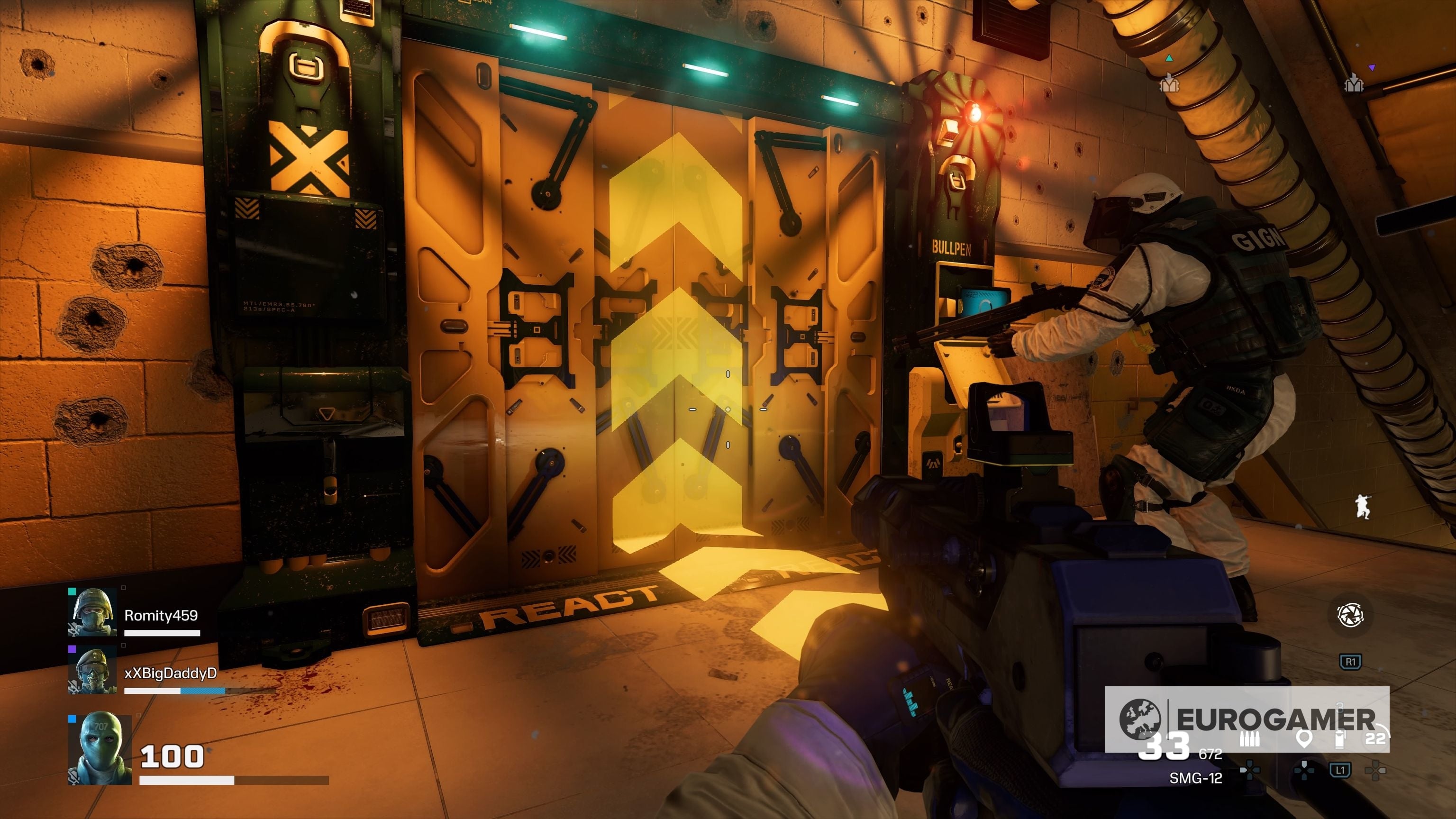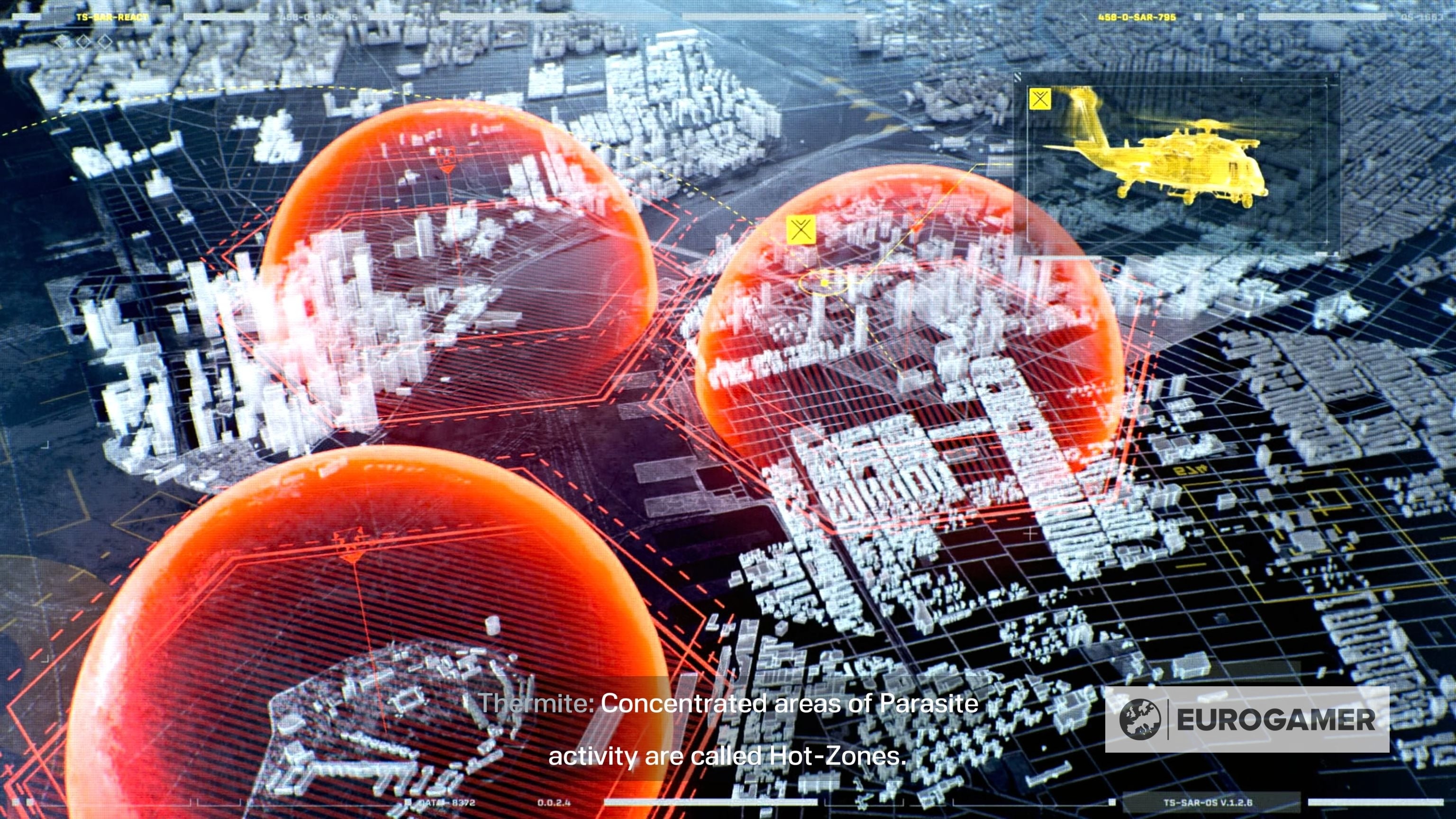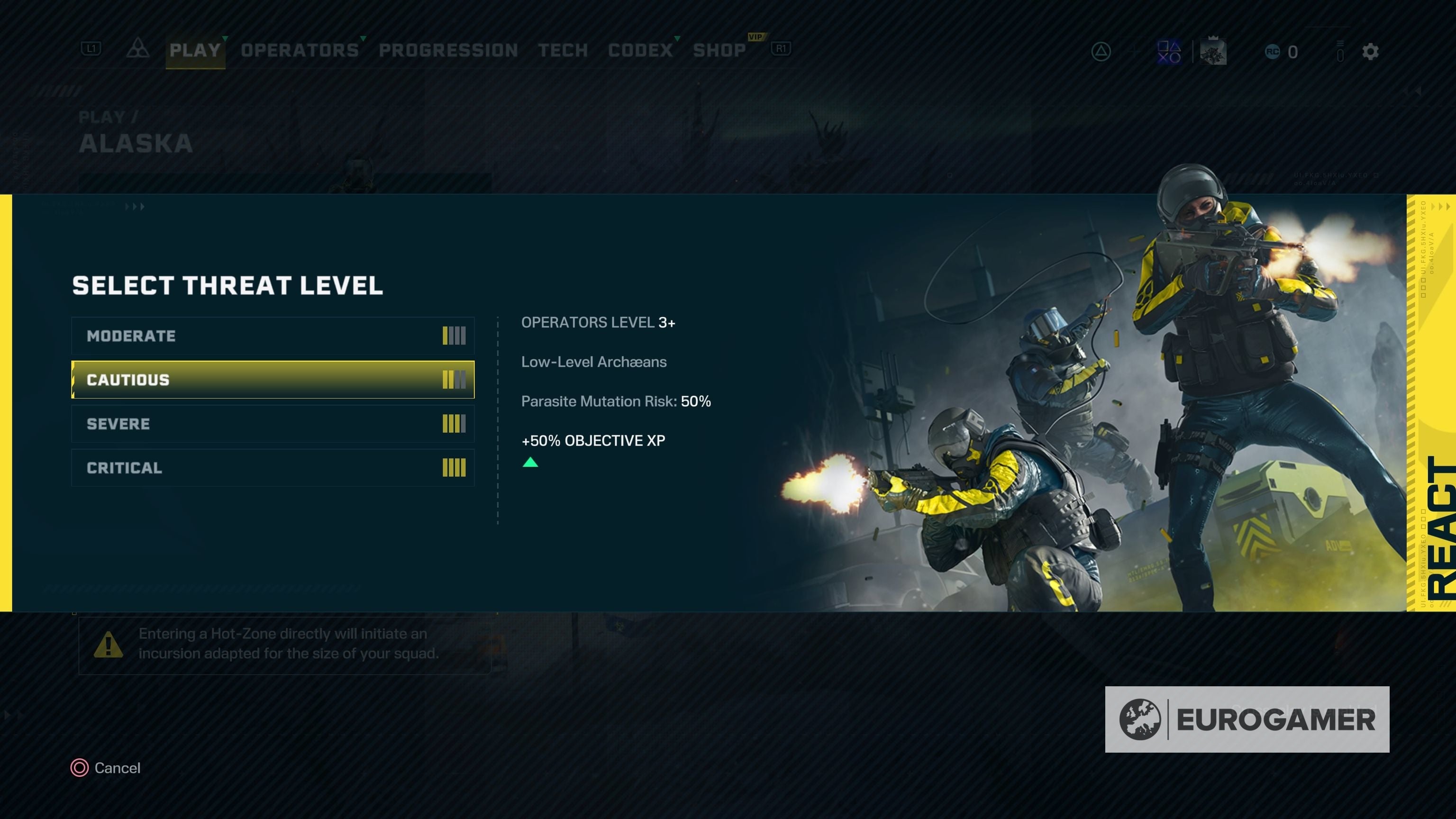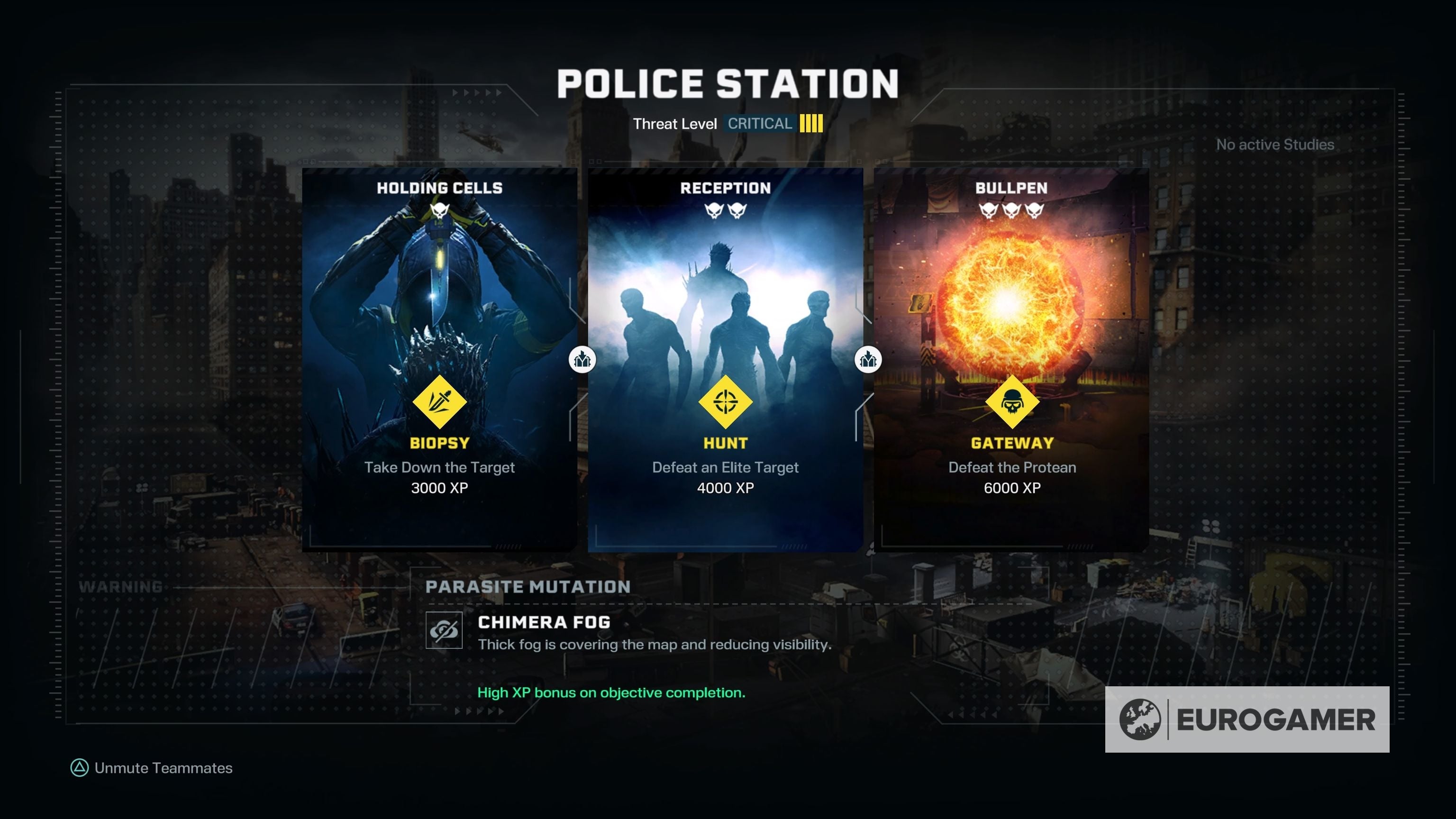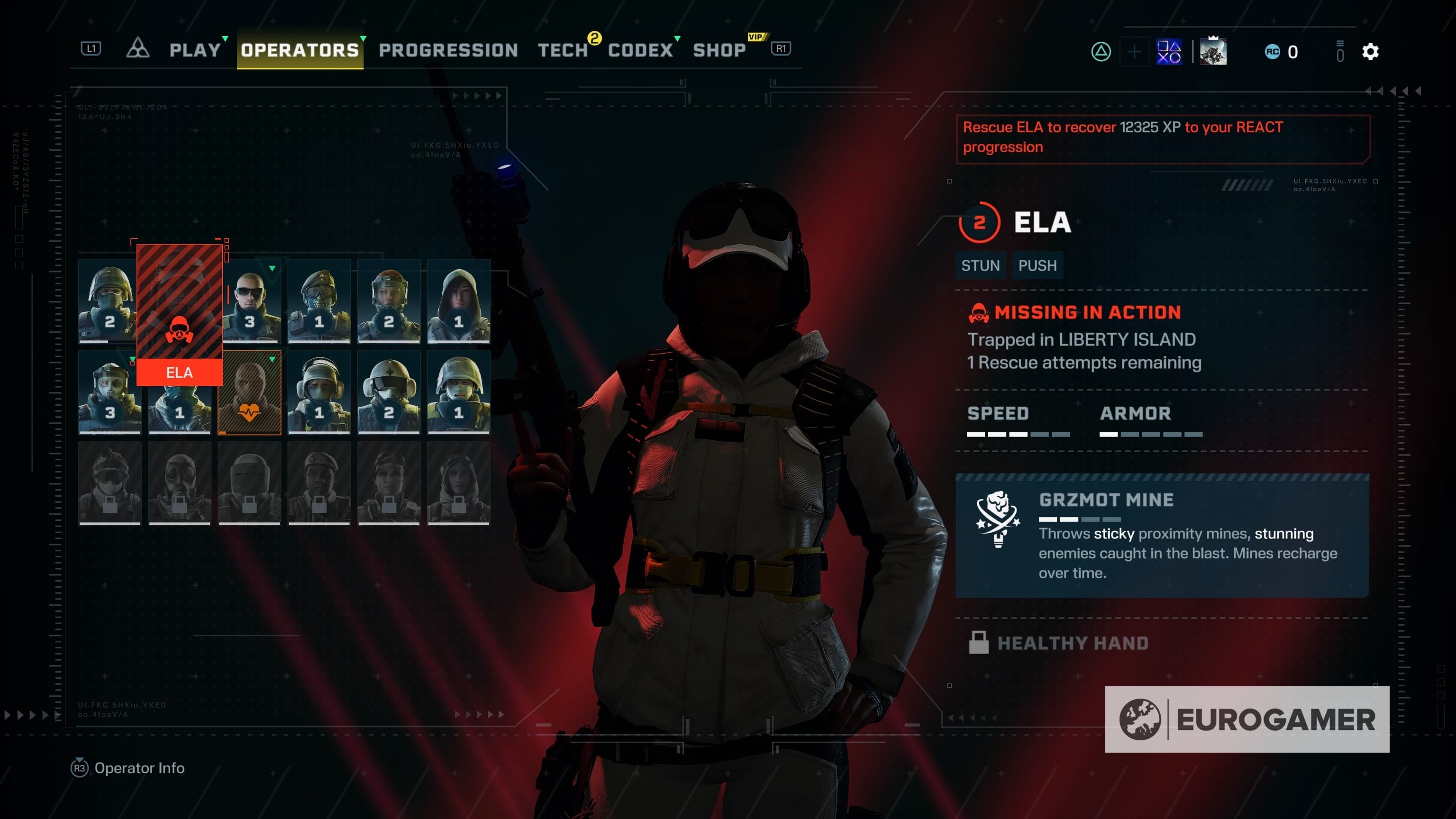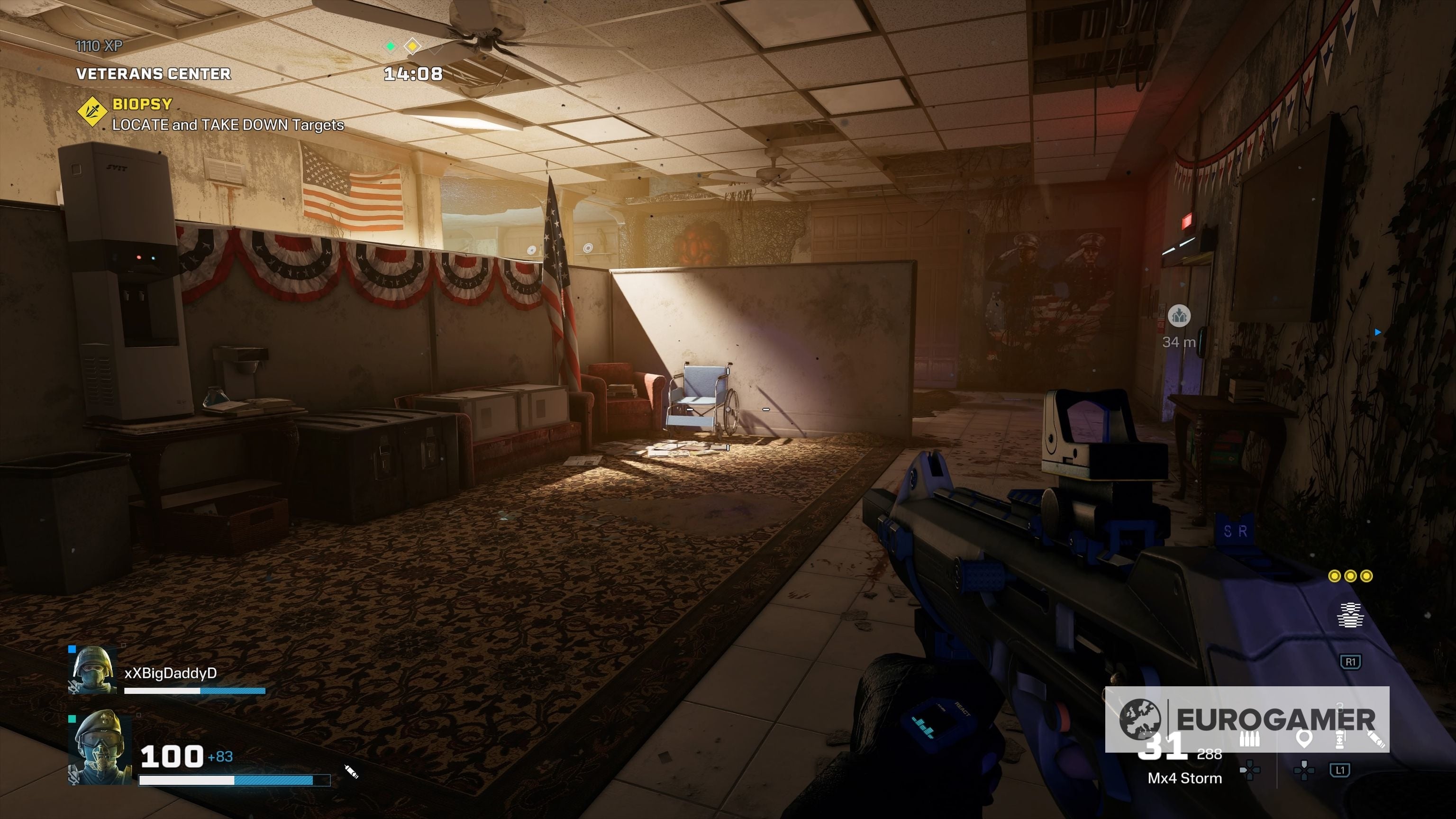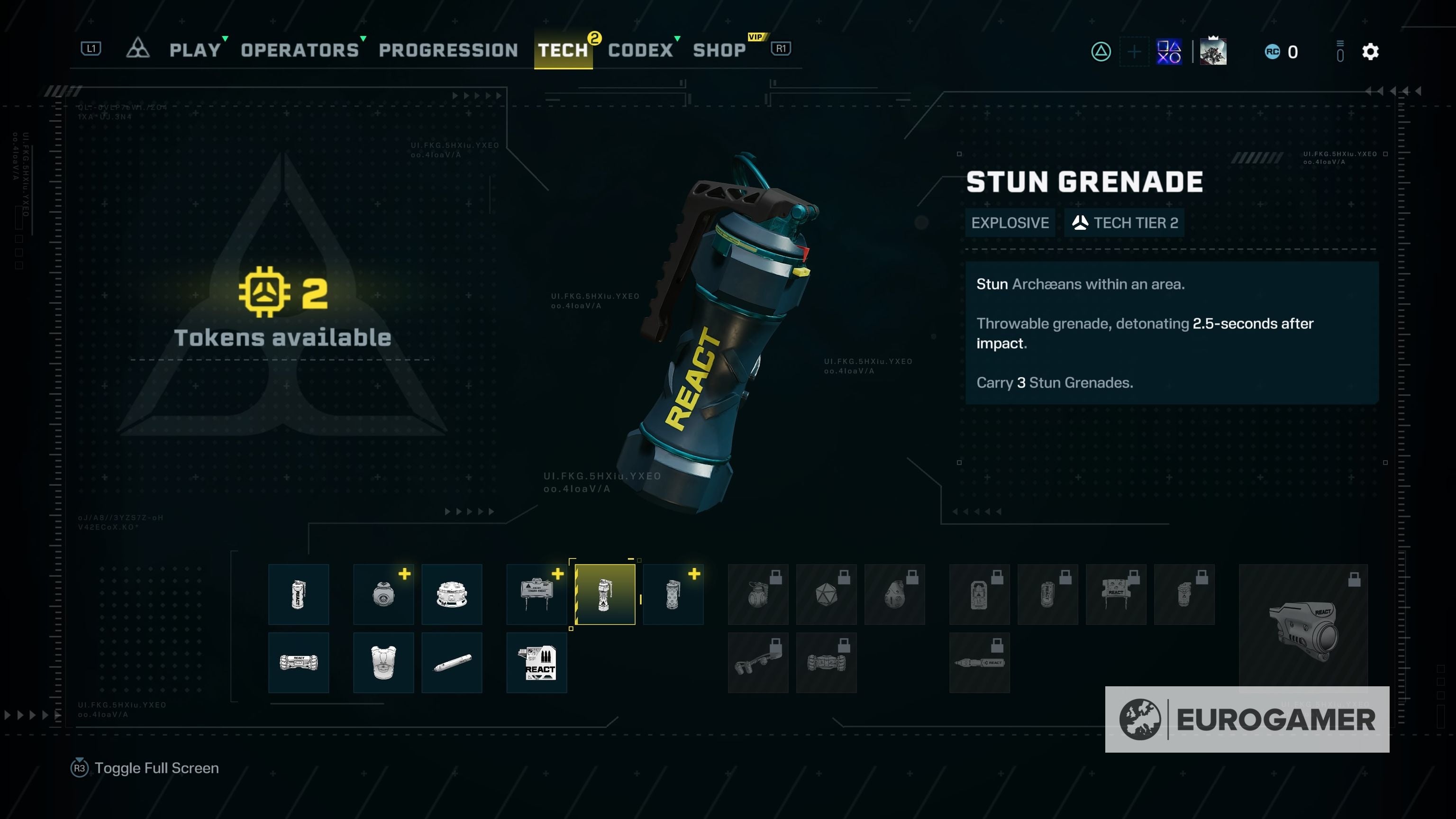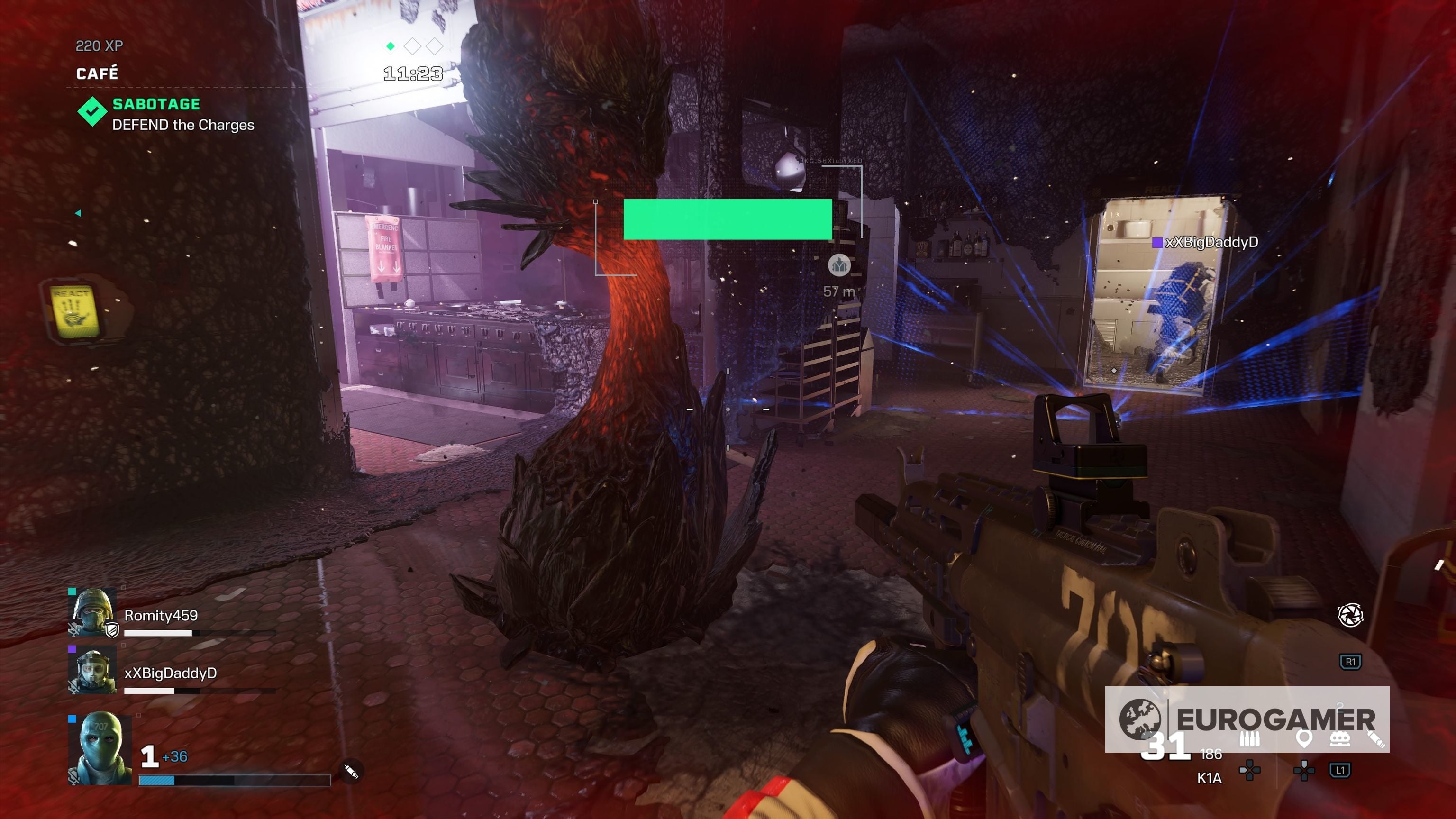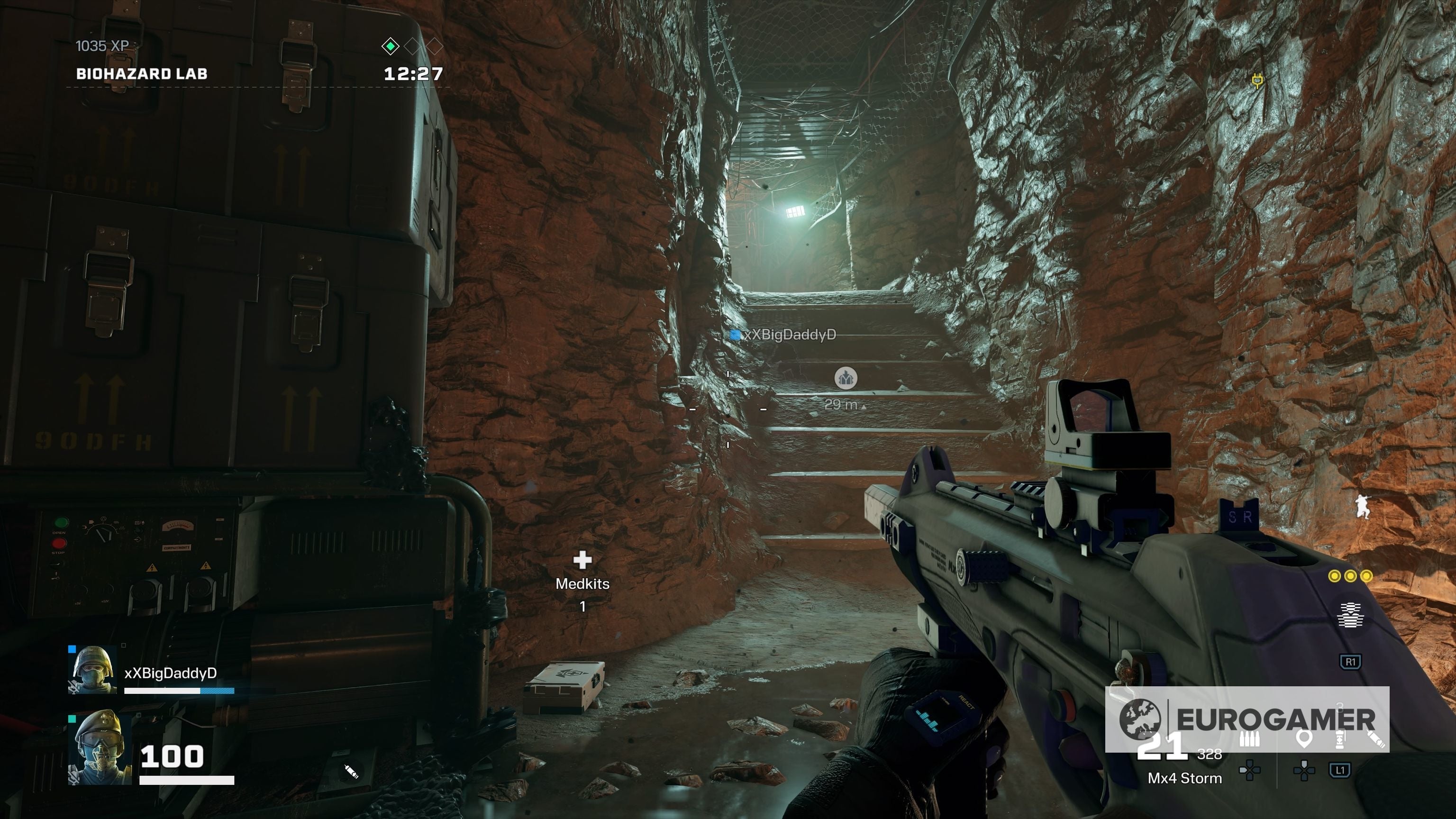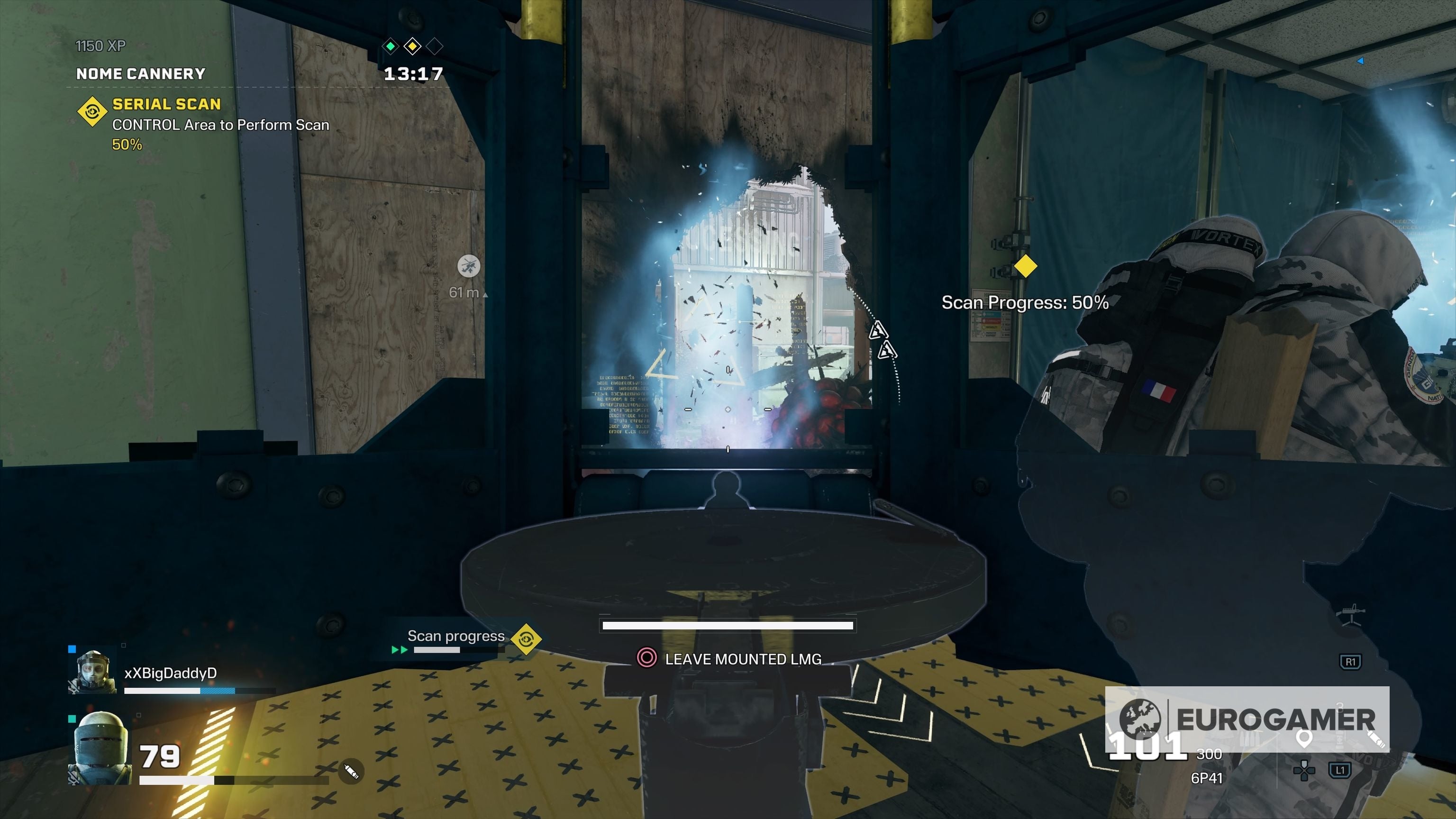Not that being different is wrong, of course. Sometimes taking an alternate road or looking at something through a new lens helps, of course; particularly when it comes to a twenty-something-year-old franchise in one of the most oversaturated genres in gaming. And that’s what makes Rainbow Six Extraction so thrilling, I guess. Though the gunplay and stealthy tactics will feel wonderfully familiar to those who’ve spent time in Rainbow Six’s annals - as will its roster of series stalwarts - Extraction is just different enough to stand out not only from its predecessors, but from the FPS genre more generally, too. Once called Rainbow Six Quarantine - you know, back in those halcyon days before any of us had ever really thought about what being in quarantine might feel like, let alone experienced one firsthand - Extraction’s story is light-touch but perfectly satisfactory, delivered without a singleplayer or “main” campaign. Picking up where Outbreak (a limited-time event in Rainbow Six Siege) dropped off, the story tracks the eruption of the Chimera parasite, which has broken out all over the US - yikes, that sounds depressingly familiar - and yes, it’s spreading. Fast. Our job, as no-nonsense REACT (Rainbow Exogenous Analysis and Containment Team) agents, is to destroy enemies, capture samples, and collect the data society needs to contain, and eradicate, this deadly threat. Consequently, our Operators, all of whom boast their own weapons, gear, and skills, although the weapons and throwables can be mixed and matched comfortably enough (pro tip: nothing can get you out of a sticky situation as effortlessly as a stun grenade), are dispatched to hostile zones to tackle a modest selection of objectives across an equally trim selection of maps. Each excursion offers three objectives, selected at random, and while they get increasingly more difficult as you progress, the rewards for getting through all three missions are all the greater, of course. Complete two and don’t think you’ll be able to pull off the third? Might be best to evacuate, then. Better to secure the XP spoils of two of three objectives than chance your luck, mess it up, and lose it - and your Operator; but more on that in a sec - completely. You see, whereas Rainbow Six traditionally tasks us with taking on humankind’s most challenging enemy of all - alas, humankind itself - Extraction instead pits us against the fleshy, toxic might of the Archaeans. As a purely cooperative shooter focussed on PvE (players versus environment) rather than the series’ more traditional PvP, it’s a departure for the franchise, but not an unwelcome one. I’ll be honest, though: at first, I reckoned there was no way this handful of maps and objectives were going to keep me and my squaddies entertained for the long haul. There’s some - but not much - variety in the maps you unlock along the way, but the objectives you’re tasked to complete are pulled from a desperately limited pool. We learned fast, and usually the hard way, that not all missions are created equal, either. Take Triangulation, for instance. Each squaddie needs to follow an unmistakable beep to locate one of three laptops secreted around the area and, in sequence, activate each one. Easy enough, eh? Decontamination, however, requires you to swiftly dispose of a dozen or so sickly-green, pulsating nests in quick succession, usually whilst Grunts, Lurkers, and Bloaters charge at you en-masse. As the nests are not always conveniently grouped together, this can be considerably less straightforward than it sounds. Despite wiping out on several occasions as we experimented with different tactics, it’s to the game’s credit, then, that one weekend later, we’re trying to arrange our next excursion whilst some of us fervently probe the in-game Codex for hints on how we’re supposed to complete the objective without at least two of us dying. Oh, but it’s bloody good fun - literally. Sneaking around, deploying your recon tech, silently taking down nests and enemies as you creep through pulsating oil slicks of dark Sprawl, an Archaean substance that sticks your feet to the ground like malevolent molasses. At times you’re called on to secure an area, and even when you think you’ve barricaded as best you can, somehow there’s always one annoying Grunt that manages to break through the ceiling to drop by unannounced, taking you by surprise. Despite the limited maps and objectives, every mission - with a new extraction point each time - feels satisfyingly different from the last, which both puzzles and delights me in equal measure. Progression is measured not by the number of enemies you slaughter, but by completing Studies across the US, including metropolitan areas like New York and San Francisco, and the less populated Alaska. It’s a neat system, forcing you to experiment with your approach, tech, skills, and attachments to collect samples and data on the threat currently dooming the world. It’s a thoughtful, and novel, way to advance that perfectly complements Extraction’s injury and MIA mechanic: both force you to think strategically about how to approach each objective with alternating species of Archaeans, and both encourage experimentation. Which leads me neatly onto that health/MIA system. Rainbow Six Extraction is not forgiving of mistakes, particularly when you’re starting out, and everything, from the suppressors on your guns to the reconnaissance tech, has an emphasis on stealth. Health does not regen - not even when you find first aid - and while you can secure a temporary reprieve by using scavenged health kits, they don’t restore your health; instead, you’ll only get a slowly-decreasing boost, which might not last long enough to get you to the final extraction zone. There’s more, too. Escape an excursion with a small amount of health remaining, and your Operator will be too injured to go into another until their health regens in real-time. Die in action completely, however, and they’ll need a squadmate to carry their body, gently cocooned in stasis foam, to the extraction zone in order to retain all their XP. If your squaddies don’t manage to get your fallen soldier out, your Operator will be deemed MIA, and all the XP you gained with them is held at ransom until they’re retrieved. Tough? Maybe. But it doesn’t half make even the most confident soldier a lot more cautious. Collaboration - or the lack thereof - in shooters is not an issue unique to Extraction, but I do wonder how successful teams can be if they’re not together in party chat. While players can ping enemies, nests, and items, detailed communication - particularly in your early missions - will be key. Will your random squadmates care about extracting your incapacitated character, or will it be every person for themselves? Will they share resources they find in the wild? How successfully can you run a frantic Decontamination mission when relying on the ping system alone? My fellow Operators and I worked collaboratively to help each other complete Studies and objectives, too; I wonder if the same can happen if players aren’t using mics? Still, Extraction delivers a surprisingly gratifying, and occasionally unsettling, experience that - despite its limited map and objective offerings, and my worries about communication - held my attention for far longer than I’d expected. No, it’s not the most innovative shooter, but it is a fine addition to the Rainbow Six line-up.
